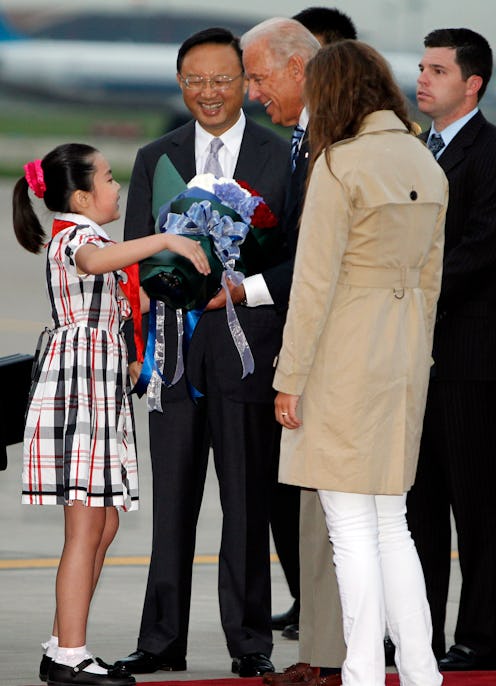News
Will U.S. Journalists Get to Stay in China?
Vice President Joe Biden swooped in to visit American journalists in China Thursday, as part of his whirlwind tour of the country this week. Many of the journalists Biden spoke with claim they are being forced to leave the country after reporting stories that are critical of the government. Biden told them that he had brought up their concerns with Chinese president Xi Jinping in each of the three meetings he'd had with the Chinese leader. Journalists from the New York Times and Bloomberg news say that their visas have not been renewed after they or their publications published investigative stories that questioned the wealth of certain Chinese leaders.
In November, the Times published an article that alleged that top Bloomberg editors killed stories that might be unflattering to the Chinese regime. According to the Times, a Bloomberg employee said that "If we run the story, we’ll be kicked out of China." The story concerned ties between a wealthy Chinese family and the country's political leadership, and has led to allegations of self-censorship in the Bloomberg media empire, despite other investigative pieces the company has published. But publishing also comes with a cost: when the Times published a critical piece in 2012, the Chinese government blocked access to its websites. Both newspapers have already had trouble securing visas for new correspondents.
Now, the visas of at least two dozen journalists already in the country — ten from the Times and 14 from Bloomberg — have not yet been renewed. Without new permissions, the journalists will have to leave China at the end of the year.
It's not clear whether Biden's meetings will have any kind of impact on the fate of the journalists, who are key insiders to our understanding of the world's largest country.
“Unfettered coverage of China is a crucial issue,” said the Times' executive editor, Jill Abramson. “At a time when China is such an important and compelling story, the world needs the highest quality reporting on it.”
Of course, the Obama/Biden administration hasn't had the best track record of its own when it comes to dealing with journalists. Recently, photojournalists launched a protest against being barred from several important White House events, of which the White House's own photographer later released photos. Before that, a report by the Committee to Protect Journalists condemned the Obama administration's treatment of the media.
Under the Obama administration, those who might leak to journalists are subjected to “lie-detector tests and scrutiny of their telephone and e-mail records.” Among the new disincentives for talking to journalists, Downie wrote, is a new “Insider Threat Program,” in which federal employees are expected to monitor their colleagues and report suspicious behavior, in a manner very reminiscent of McCarthy-era witch hunts. “There’s a gray zone between classified and unclassified information, and most sources were in that gray zone,” said New York Times reporter Scott Shane, who writes about National Security. “Sources are now afraid to enter that gray zone. It’s having a deterrent effect. If we consider aggressive press coverage of government activities being at the core of American democracy, this tips the balance heavily in favor of the government.”
